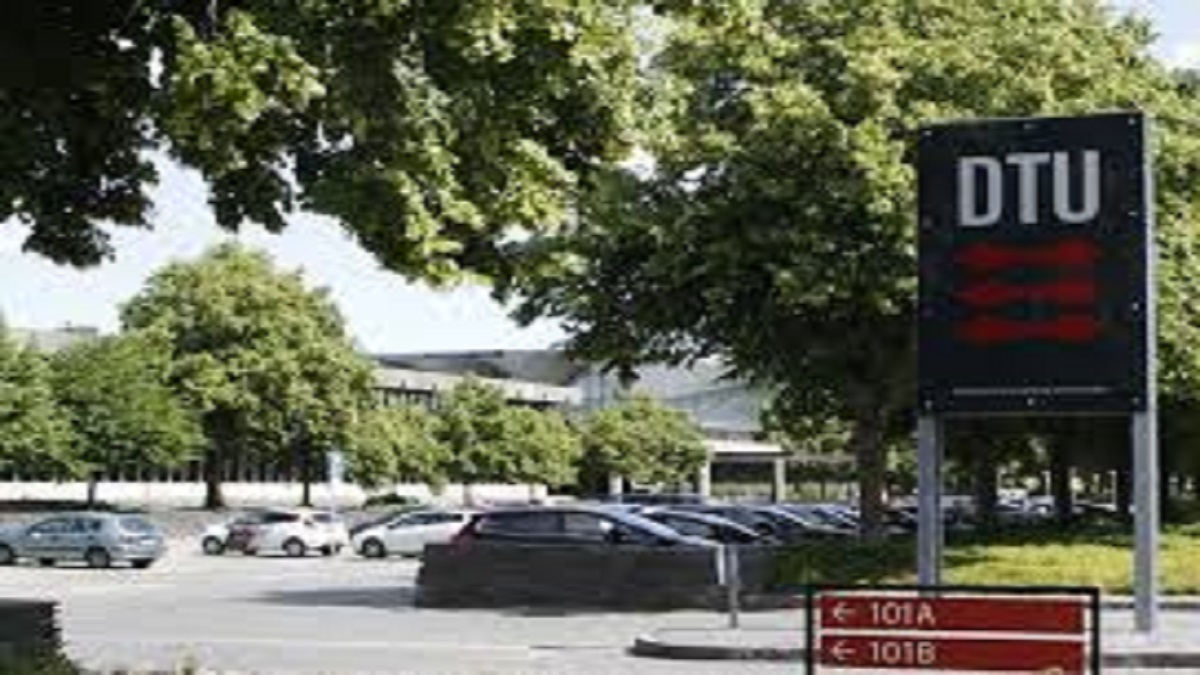
We have an opening for an experimental PhD project in the Quantum and Laser Photonics Group. The project will focus on new types of semiconductor lasers for applications in quantum and information technology. Our group recently made a breakthrough in laser research by demonstrating a nanolaser with the smallest threshold current ever measured. In this project, we want to explore new regimes of laser physics by exploiting the concepts of Fano resonances and extreme confinement of light. The overall motivation is to realise a new generation of microscopic lasers with ultra-high speed, reduced quantum noise and near-unity quantum efficiency. This requires progress within several scientific disciplines, including the theory and modelling of light-matter interaction in nanostructures, nanofabrication and experimental characterisation of nanophotonic devices. The present project will mainly focus on fabrication and experimental characterization, but will also involve modelling and design.
The project is part of a major leading-edge research activity at the Technical University of Denmark focusing on the physics and application of semiconductor nanophotonic structures and bringing together researchers from several departments at DTU. The research is funded by an ERC Advanced Grant from the European Research Council and a Center of Excellence Grant from the Danish National Research Foundation (see www.nanophoton.dtu.dk).
Responsibilities and tasks
The project is mainly experimental and involves work in DTU’s state-of-the-art cleanrooms and optical labs. The specific tasks include laser simulations, with a specific emphasis on electrical properties, mask design, e-beam lithography and experimental characterization of fundamental laser characteristics. The ambitious goals of the project are addressed as a collaborative effort, involving a team of researchers with expertise in the relevant scientific fields
As part of the Danish PhD program, the student will follow a number of PhD courses, take part in teaching and conduct and external research stay.
Qualifications
Candidates should have a two-year master’s degree (120 ECTS points) or a similar degree with an academic level equivalent to a two-year master’s degree. Candidates with a strong background in one or several of the following topics are preferred: photonics, solid-state physics, quantum optics, or nanoelectronics. Experience from working in a cleanroom or optical laboratories an strong advantage. Only candidates with a GPA belonging to the very top or a proven track-record of relevant research can expect to be called for interview.
Approval and Enrolment
The scholarship for the PhD degree is subject to academic approval, and the candidate will be enrolled in one of the general degree programmes at DTU. For information about our enrolment requirements and the general planning of the PhD study programme, please see DTU’s rules for the PhD education.
Assessment
Candidates will be assessed by Professor Jesper Mørk, Senior Researcher Yi Yu, and Professor Kresten Yvind.
We offer
DTU is a leading technical university globally recognised for the excellence of its research, education, innovation and scientific advice. We offer a rewarding and challenging job in an international environment. We strive for academic excellence in an environment characterised by collegial respect and academic freedom tempered by responsibility.
Salary and appointment terms
The appointment will be based on the collective agreement with the Danish Confederation of Professional Associations. The allowance will be agreed upon with the relevant union. The period of employment is 3 years.
You can read more about being a PhD student at DTU here.
Further information
Further information may be obtained from Professor Jesper Mørk, jesm@dtu.dk. tel.: +45 2082 4576.
You can read more about DTU Electro and the Nanophotonics Section here.
If you are applying from abroad, you may find useful information on working in Denmark and at DTU at DTU – Moving to Denmark. Furthermore, you have the option of joining our monthly free seminar “PhD relocation to Denmark and startup “Zoom” seminar” for all questions regarding the practical matters of moving to Denmark and working as a PhD at DTU.
Application procedure
Your complete online application must be submitted no later than 21 November 2022 (Danish time). Applications must be submitted as one PDF file containing all materials to be given consideration. To apply, please open the link “Apply online”, fill out the online application form, and attach all your materials in English in one PDF file. The file must include:
- A letter motivating the application (cover letter)
- Curriculum vitae
- Grade transcripts and BSc/MSc diploma (in English) including official description of grading scale
You may apply prior to obtaining your master’s degree but cannot begin before having received it.
Applications received after the deadline will not be considered.
All interested candidates irrespective of age, gender, race, disability, religion or ethnic background are encouraged to apply.
DTU Electro has 270 employees with competences in physics, photonics and electrical emgineering. Research is performed within nanophotonics, lasers, quantum photonics, optical sensors, LEDs, photovoltaics, ultra-high speed optical transmission systems, and bio-photonics.
Technology for people
DTU develops technology for people. With our international elite research and study programmes, we are helping to create a better world and to solve the global challenges formulated in the UN’s 17 Sustainable Development Goals. Hans Christian Ørsted founded DTU in 1829 with a clear mission to develop and create value using science and engineering to benefit society. That mission lives on today. DTU has 13,400 students and 5,800 employees. We work in an international atmosphere and have an inclusive, evolving, and informal working environment. DTU has campuses in all parts of Denmark and in Greenland, and we collaborate with the best universities around the world.
Apply for this job
Apply no later than 21 November 2022
Apply for the job at DTU Electro by completing the following form.




